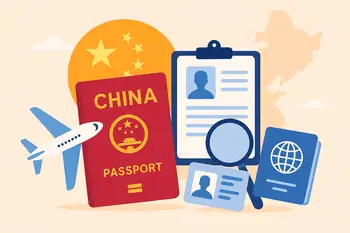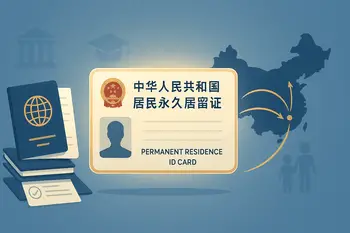
China is a land of opportunity, vibrant culture, and dynamic cities.
Whether you’re an expat living in China or a traveler exploring its wonders, managing your finances wisely can significantly enhance your experience.
In this guide, we’ll explore practical, detailed strategies for saving money in China, complete with examples, resources, and tips tailored to your needs.
Understanding the Cost of Living in China
The cost of living in China varies greatly depending on the city and lifestyle.
Major cities like Beijing, Shanghai, and Shenzhen are among the most expensive, with average monthly rent for a one-bedroom apartment ranging from ¥5,000 to ¥10,000.
In contrast, smaller cities like Chengdu or Xi’an offer more affordable living, with rents as low as ¥2,000 to ¥4,000.
Understanding the cost of living in your specific location is the first step toward effective money management.
For a detailed breakdown of living costs by city, check out Numbeo’s Cost of Living in China.
1. Housing: Opt for Affordable Accommodation
Housing is often the largest expense for expats and travelers.
Here are some ways to save:
- Shared Apartments: Sharing an apartment with roommates can significantly reduce rent and utility costs. Platforms like SmartShanghai and TheBeijinger offer listings for shared accommodations.
- Long-Term Rentals: Negotiate long-term rental agreements, which often come with discounts. Apps like Ziroom and Lianjia are great for finding affordable options.
- Avoid Expensive Areas: Consider living in suburban areas or less popular districts, which often have lower rents while still being accessible via public transit.
2. Transportation: Embrace Public Transit
China boasts an extensive and efficient public transportation system.
Here’s how to save on transportation:
- Public Transit: Use the metro, buses, and trams, which are affordable and well-connected. For example, a monthly metro pass in Shanghai costs around ¥150. Check local transit apps like MetroMan for schedules and routes.
- Bike-Sharing Programs: Services like Mobike and Meituan Bike offer eco-friendly and cost-effective ways to get around, with rides starting at just ¥1.
- High-Speed Trains: For intercity travel, high-speed trains are a fast and economical option compared to flights. Use 12306 China Railway to book tickets.
3. Food: Enjoy Local Cuisine Without Overspending
Food is a highlight of living in China, and you don’t need to spend a fortune to enjoy it:
- Street Food and Local Eateries: Try local street food, where meals can cost as little as ¥10-¥20. Apps like Dianping can help you find affordable restaurants.
- Cook at Home: Shop at local wet markets for fresh produce, which is often cheaper than supermarkets. For example, a kilogram of vegetables can cost as little as ¥5.
- Meal Prep: Preparing meals in advance can help you avoid the temptation of dining out frequently.
4. Shopping: Be a Smart Shopper
Shopping in China can be affordable if you know where to look:
- Bargain at Markets: In traditional markets, bargaining is common. Start by offering 50% of the asking price and negotiate from there.
- Use Discount Apps: Apps like Taobao and Pinduoduo offer great deals on a wide range of products.
- Buy Local Brands: Imported goods are often more expensive due to tariffs. Opt for local brands to save money.
5. Entertainment: Explore Free and Low-Cost Activities
China offers a wealth of entertainment options that won’t break the bank:
- Parks and Gardens: Many parks, such as Beijing’s Temple of Heaven or Shanghai’s Fuxing Park, have free or low-cost entry.
- Cultural Sites: Museums and temples often offer free or discounted entry on certain days. For example, many museums in China have free admission on International Museum Day (May 18).
- Community Events: Join expat groups on platforms like Internations or WeChat groups to find free or low-cost social events.
6. Banking: Optimize Your Finances
Managing your finances effectively is key to saving money:
- Open a Local Bank Account: Avoid foreign transaction fees and access better exchange rates by opening a local account with banks like ICBC or Bank of China.
- Use Digital Wallets: Apps like WeChat Pay and Alipay are essential for daily transactions. They also offer discounts and cashback on purchases.
- Track Expenses: Use budgeting apps like Mint or You Need a Budget (YNAB) to monitor your spending.
7. Utilities: Manage Your Consumption
Utility costs can add up, but small changes can lead to big savings:
- Energy Efficiency: Use energy-efficient appliances and unplug devices when not in use. For example, air conditioning can cost ¥1-¥2 per hour, so use it sparingly.
- Water Conservation: Fix leaks promptly and take shorter showers to reduce water bills.
- Split Costs: If you live in shared accommodation, divide utility bills with roommates to save money.
8. Emergency Financial Planning
Unexpected expenses can arise, so it’s essential to be prepared:
- Health Insurance: Ensure you have comprehensive health insurance to cover medical emergencies. Check out providers like Ping An Health or AXA China.
- Emergency Fund: Keep at least three months’ worth of living expenses in a savings account for emergencies.
- International Transfers: Use services like Wise for low-cost international money transfers.
Conclusion
Living and traveling in China offers a unique and enriching experience.
By adopting these best practices for saving money, you can make the most of your time in this incredible country without compromising on quality of life.
From affordable housing and transportation options to smart shopping and entertainment strategies, there are plenty of ways to manage your finances effectively.
Embrace the local culture, plan proactively, and enjoy all that China has to offer while keeping your budget intact.


